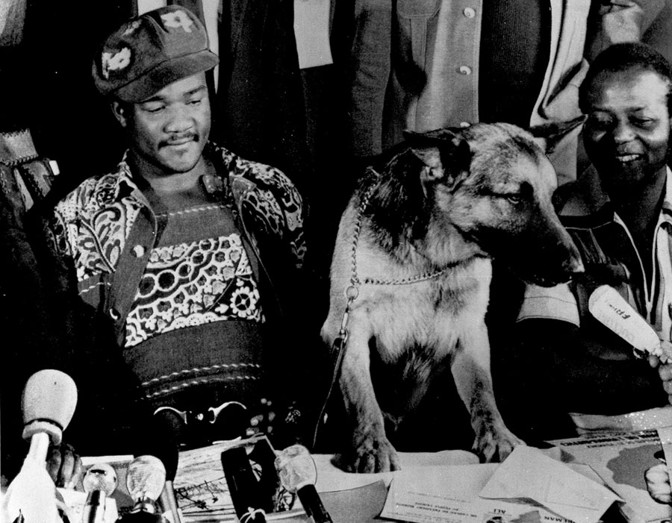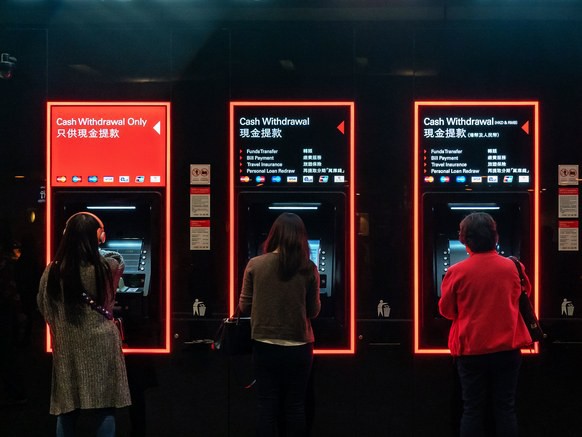
The U.S. Intelligence Community
What We’re Following
The United States and Canada will ground the Boeing 737 Max aircraft, now joining multiple other countries in Europe and Asia, days after all 157 people on board a jet of that model died in a crash near Addis Ababa. Grounding isn’t unprecedented for the U.S. Federal Aviation Administration: It grounded the 787 Dreamliner in 2013 and the DC-10 in 1979 (the DC-10 was still made until the 1980s, and the Dreamliner is still widely used). What will happen with the 737 Max? Was the FAA right to wait as long as it did?
Paul Manafort was sentenced to 43 months in prison on Wednesday for crimes including conspiracy and witness tampering (this follows the 47 months he received last week in a Virginia court). This time around, Manafort’s lawyers switched their tactics, imploring the judge for leniency while also trying to convince President Donald Trump of a pardon. But even that wouldn’t rid Manafort of his tangle of legal troubles: An hour after the ruling, he was indicted on more crimes by the Manhattan district attorney, charges that are ineligible for a presidential pardon.
With the Catholic Church slow to respond to the sexual-abuse crisis in its ranks, civil courts have stepped in. George Pell was sentenced this week by an Australian court to six years in prison—making him the highest-ranking Church official to face civil justice. The conviction is a breakthrough for victims’ advocates, and it comes just a month after a major meeting convened by Pope Francis to address the protection of children in the Church. “The momentum here is in the civil courts,” writes Rachel Donadio, “not Vatican City.”
Two of the most prominent names in the 2020 presidential race still haven’t actually announced. Joe Biden is barreling toward a run predicated on the idea that he’s a white, working-class whisperer who can connect with Trump voters. But is that idea all wrong? Biden’s two previous presidential campaigns flamed out spectacularly; he’s never successfully run a race on his own outside of Delaware. Meanwhile, Beto O’Rourke, the Texas Democrat who lost the Senate race against Ted Cruz in November, has been teasing his own bid with meandering blog posts, a road trip across the country, and cover splashes in Vanity Fair. O’Rourke is breaking the rules of how to get into a presidential race, but as a handsome white, male politician, deviating from convention might be easier for him, argues Megan Garber.
Snapshot

(Levy / AP)
The world heavyweight champion George Foreman listens as his shepherd dog, Daggo, barks into microphones during a news conference at Orly Airport in Paris on September, 12, 1974. Foreman was in transit from the United States to Kinshasa, the Democratic Republic of Congo, where was scheduled to meet Muhammad Ali in a title bout later that month.
The Atlantic’s photo editor Alan Taylor pulled this, and other important vox paw-puli images, from nearly a century of archives. View the full gallery here.
Evening Read

For a certain type of American shopper—young, urban, and perhaps a tad short on cash—the clothing brand Uniqlo has become ubiquitous for its line of affordable basics. But the brand isn’t on as solid ground in the U.S. as its flourishing big-city stores might make it seem:
“In Asia, Uniqlo is everywhere. More than 800 of the brand’s stores are in Japan—where Uniqlo, by its own estimates, accounts for about 6.5 percent of the total apparel market. Much of the brand’s international growth in recent years has come from other countries in the region, including mainland China, Hong Kong, Taiwan, and South Korea.
To achieve the kind of dominance in the U.S. that the company enjoys closer to home, Uniqlo will need to grow significantly. A few years ago, [Owner Tadashi] Yanai aimed to generate $10 billion in sales from 200 stores in the U.S. by 2020; the company currently operates its 50 or so U.S. stores at a loss.”
From Our Partners

Hacking ATMs to steal money has become so easy that hijackers are turning it into a game. One form of malicious software, which researchers say has reportedly afflicted certain popular ATM-machine brands, turns the ATM’s usual cash-withdrawal screen into something like a slot machine. “Expect ATM hacking to only get more popular—and more farcical.”
Looking for our daily mini crossword? Try your hand at it here.
Comments, questions, typos? Email newsletters editor Shan Wang at swang@theatlantic.com
We have many other free email newsletters on a variety of other topics. Find the full list here.

 Remarks as Prepared for Delivery by First Lady Jill Biden at the 2024 Women’s Health “Health Lab”
Remarks as Prepared for Delivery by First Lady Jill Biden at the 2024 Women’s Health “Health Lab” 